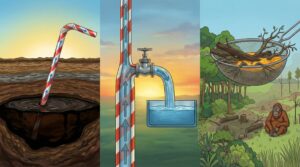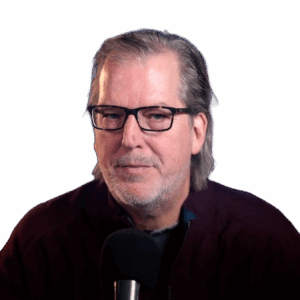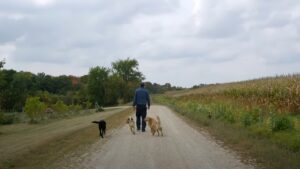
#75 | Frankly
Somebody’s Gonna Win
Description
Somebody is going to win the upcoming US election. In a society deeply divided along partisan lines, individual identities and hopes/fears for the future may seem bound to a single choice: Republican or Democrat. Who wins is important, but if we take a step back and look beyond the short-term fervor of election politics, it becomes clear that what ultimately matters isn’t which person wins but how we – as individuals and as communities – respond.
In the long run, most things that will change the future are political. But our current government will continue to contribute to a future that is far from sustainable – regardless of who heads the next administration. The ‘bend not break’ moments of the future will require informed policies that go beyond what can be addressed in today’s political environment.
In today’s Frankly, Nate reminds us that the realities of our accelerating predicament go way beyond election results. Rather than filtering people solely by their political preferences, we should lean into the more profound and deeper ways of understanding and connecting with one another. And when it comes to the long-term stability and viability of our civilization, money and politics are secondary to the health of the biosphere and the non-renewable materials and energy which underpin it. Building on these insights, Nate provides a list of practical steps listeners can take before and after the election, regardless of the outcome.
In what ways are both political parties subservient to the dynamics of the Superorganism? How does election rhetoric keep us from confronting the issues that really matter? And what can we be doing, individually and collectively, to create a future of social and ecological resilience, no matter who holds office?
Support The Institute for the Study of Energy and Our Future
In French, we have a motto that says that a simple drawing is often better than a long explanation. Jean-Marc Jancovici Carbone 4 President
That’s very understandable because with left atmosphere thinking, one of the problems is that you see everything as a series of problems that must have solutions. Iain McGilchrist Neuroscientist and Philosopher
We can’t have hundreds and hundreds of real relationships that are healthy because that requires time and effort and full attention and awareness of being in real relationship and conversation with the other human. Nate Hagens Director of ISEOF
This is the crux of the whole problem. Individual parts of nature are more valuable than the biocomplexity of nature. Thomas Crowther Founder Restor
Show Notes & Links to Learn More
Download transcript01:06 – Frankly on Wide-Boundary lenses
03:48 – The Superorganism
04:30 – US military spending data
04:43 – US debt data
04:54 – BRICS summit Kazan + key takeaways
04:58 – BRICS represents *45% of global population and 35% of GDP
05:07 – GDP growth: BRICS vs G7
05:33 – US greenhouse gas emissions data
06:13 – Leaving the stability of the Holocene
08:25 – The issues which matter during elections
14:13 – Hurricane Helene in North Carolina
17:49 – Every-Gromen Roundtable
19:10 – Pierre Teilhard de Chardin + quote





